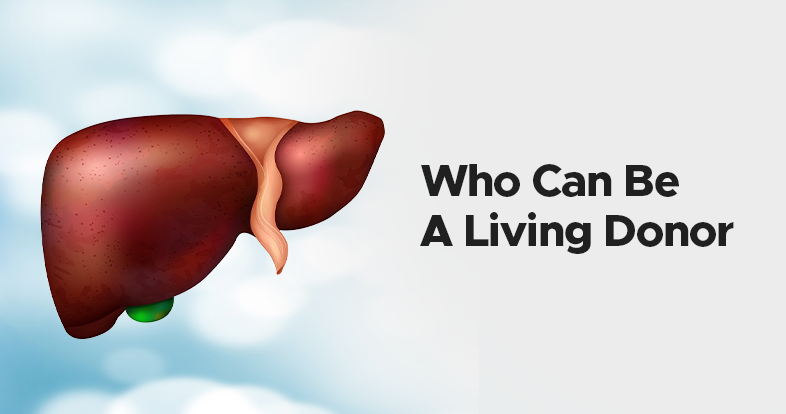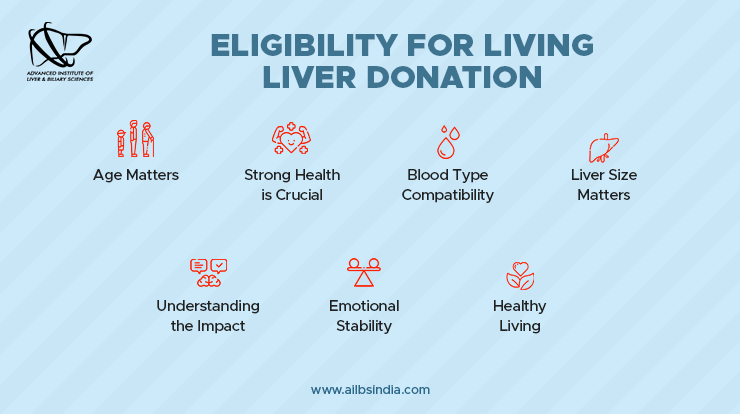 People battling end-stage liver disease, a liver transplant is often the only chance at renewed health and survival. The journey towards a successful liver transplant usually begins with finding a suitable donor.
People battling end-stage liver disease, a liver transplant is often the only chance at renewed health and survival. The journey towards a successful liver transplant usually begins with finding a suitable donor.
Living liver donation emerges as a ray of hope, offering a second chance at life for those battling liver disease. If you have ever considered becoming a living liver donor, you likely have many questions swirling:
This blog post will explore who is eligible to be a living liver donor and shed light on this extraordinary act of selflessness.
Most people are familiar with the concept of whole organ donation from deceased donors. Living liver donation is different and extraordinary. Unlike most organs, the liver has the unique ability to regenerate. This means a healthy person can donate a portion of their liver (typically the right lobe), which will then regrow in both the donor and recipient. While it may seem impossible, living liver donation has been performed successfully for decades. When carried out by highly experienced surgeons using advanced techniques, both the donor and recipient can emerge with renewed health and fully functioning livers.

Becoming a living liver donor is a noble decision, offering a ray of hope to those in dire need. The eligibility criteria are designed with utmost care, prioritizing the health and safety of both the donor and the recipient. Let’s explore these donor requirements & evaluation, ensuring that anyone considering this generous act understands what it entails.
Age Matters: If you are between 18 and 55 years old, you are within the primary age group considered for living liver donation. This age range is chosen to ensure donors are mature enough to make informed decisions and generally in good health.
Strong Health is Crucial: Being in good health means more than just feeling fine. Potential donors undergo thorough health screenings to ensure they don’t have diseases, conditions, or lifestyle factors that could complicate the donation process or affect their recovery. This includes but is not limited to being free from liver disease, having no serious cardiovascular conditions, and not suffering from uncontrolled diabetes or hypertension.
Blood Type Compatibility: Just like in any transplant, the donor’s and recipient’s blood types must be compatible. This ensures the recipient’s body accepts the new liver segment.
Liver Size Matters: The donor’s liver size is also considered to ensure the transplanted portion will fit well and function properly in the recipient’s body. It’s like finding the right piece for a puzzle, providing it fits just right.
Understanding the Impact: Donating a part of your liver is a life-changing decision. Potential donors are evaluated to ensure they fully understand the emotional and physical implications of their decision. This includes understanding the surgery, the recovery process, and the impact it might have on their lives.
Emotional Stability: Donors must be emotionally stable and decide to donate out of their free will, without any external pressure. This emotional readiness is crucial for a smooth recovery and a positive donation experience.
Healthy Living: Donors should lead a healthy lifestyle, including having a balanced diet, engaging in regular physical activity, and abstaining from excessive alcohol consumption or the use of tobacco products. These factors contribute to the overall success of the transplant and the donor’s recovery.
Support System: Having a strong support system is crucial. Donors need people around them who can provide emotional and practical support during the donation process and throughout their recovery.
The evaluation process is rigorous and designed to protect the donor’s health while maximizing the success rate of the liver transplant in India. It includes a series of blood tests, imaging studies, and consultations, painting a detailed picture of the donor’s health.
Living liver donation is proof of medical marvels, allowing a part of the liver to be safely transplanted. The liver’s regenerative power means that both donor and recipient can expect their livers to grow back to normal size, promising a return to health.
With a skilled transplant team and properly screened donors, living liver donation is safe and well-tolerated. The most recent data on living liver donor survival rate shows:
These statistics demonstrate that, while no surgery is risk-free, the benefits of living liver donation make it worthwhile for carefully screened, committed donors.
Living liver donation has saved tens of thousands of lives around the world by shortening transplant wait times. By understanding the living liver donor requirements, potential donors can make informed decisions about their readiness to give the gift of life. With careful screening and evaluation, the donation process prioritizes the health and safety of donors, ensuring that this act of kindness is as safe as possible for everyone involved. Dr Vivek Vij is one of the best liver surgeons in India who provides the best liver transplant in India with high expertise and utmost care. In considering living liver donation, you are not just offering a part of your liver; you are offering a lifeline, a chance for someone to dream again.
Can I donate a part of my liver if I’m over 55 years old?
Ans. While the ideal age range for liver donors is between 18 and 55 years old, exceptions can be made based on the donor’s overall health and specific circumstances. If you are over 55 but in excellent health, you might still be considered. It’s important to undergo a thorough evaluation to determine your eligibility.
What if my blood type doesn’t match the recipient’s?
Ans. Blood type compatibility is crucial for a successful liver transplant. However, there are special cases and new techniques, such as ABO-incompatible transplants, that make it possible to donate even if your blood types don’t match.
How long does it take to recover from donating a part of my liver?
Ans. Recovery times can vary, but most living liver donors can expect to spend about 7 to 10 days in the hospital after surgery. It usually takes about 2 to 3 months to feel fully recovered.
Will donating a part of my liver affect my life expectancy or quality of life?
Ans. Living liver donors typically lead healthy, normal lives after recovery. The liver’s remarkable ability to regenerate allows both the donor’s and recipient’s liver segments to grow back to normal size, usually within a few months.


